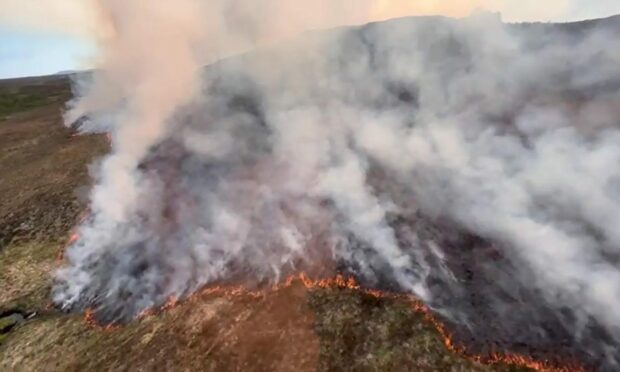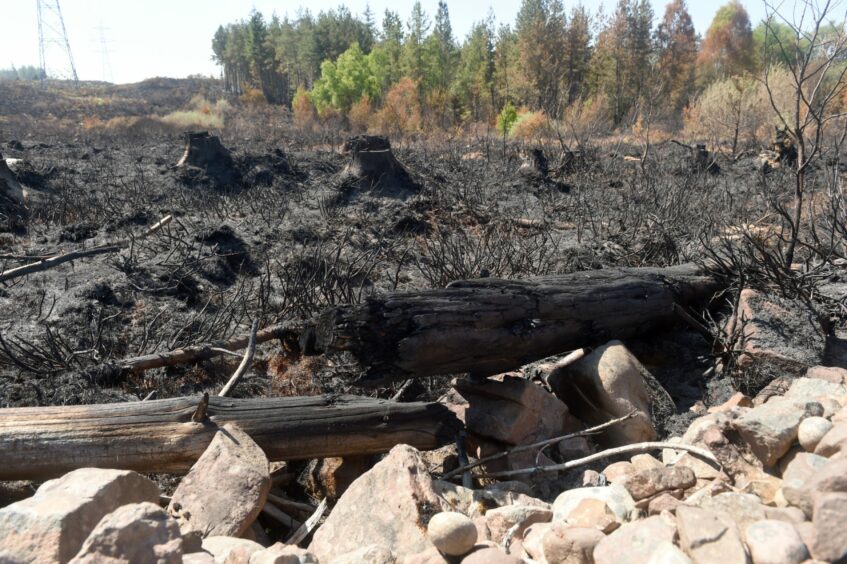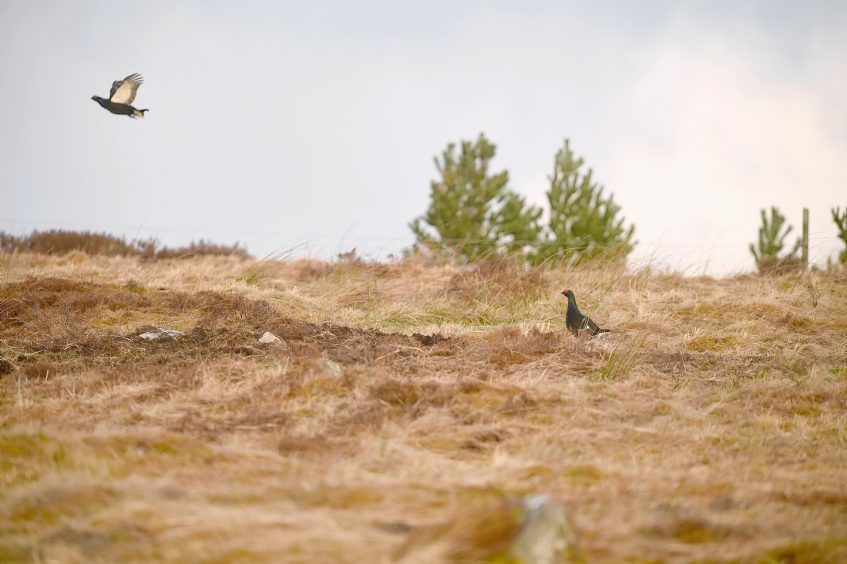A wildlife rescue manager has spoken of fears that an entire breeding season could be lost in the wake of the devastating Cannich wildfire.
Jane Wilson, centre manager for Highland Wildlife Rescue, said the wildfire has come at “the worst possible time” as many animals are rearing and raising young.
The blaze started on Sunday and has reached the Corrimony Nature Reserve. Firefighters estimate about six square miles of land has been destroyed, the equivalent of 2,182 football pitches.
While the rescue centre has not taken any patients in yet, the team is preparing to help if their assistance is required.
Ms Wilson explained the area is a mixture of different habitats, including scrub, birch woodland, heather moorland and forestry, meaning there’s a significant number of wildlife that the blaze could impact.
In the area, there are ground-nesting birds, like black grouse, hedgehogs, common lizards, red deer, adders, and a vast variety of birds from golden eagles to Scottish crossbills.
“The danger from the wildfire is three-fold,” she explained. “There will be death from the flames or the smoke, injuries either directly from the fire or wild animals fleeing, and then there’s displacement as well.
“The animals that can fly or flee to reach safety end up in unfamiliar territory and then the resources that are in that new area are stretched.
“The whole time you’ve to consider it baby season, it’s the worst time of year for something like this to happen.”
Ms Wilson also works at the Blue Highland Bird Rescue, and she says the teams in Brora are making sure they are prepared and ready to help if needed.
She believes any wildlife casualties so far will have been found by the emergency services and either looked after on the scene or taken to local vets.
But, she said both centres are willing to take in any patients if a local vet wanted to transfer them.
Youngsters could be ‘wiped out’
Ms Wilson told The Press & Journal there is a “high level of concern” for native wildlife in the area.
The ground-nesting birds are either sitting on their nests or raising their young, and while adult birds can fly to safety they may stay to try to protect their young.
The centre manager also explained the wildfire won’t just affect where the flames have scorched the landscape and burned trees and shrubbery, but will cause smoke damage further away.
She warned: “Nesting season only lasts for a finite amount of time, which means a whole host of youngsters from this season could be potentially wiped out. That’s an entire breeding season lost to both at-risk birds and the more common species.
“It’s a wildlife catastrophe for that area.”



Conversation